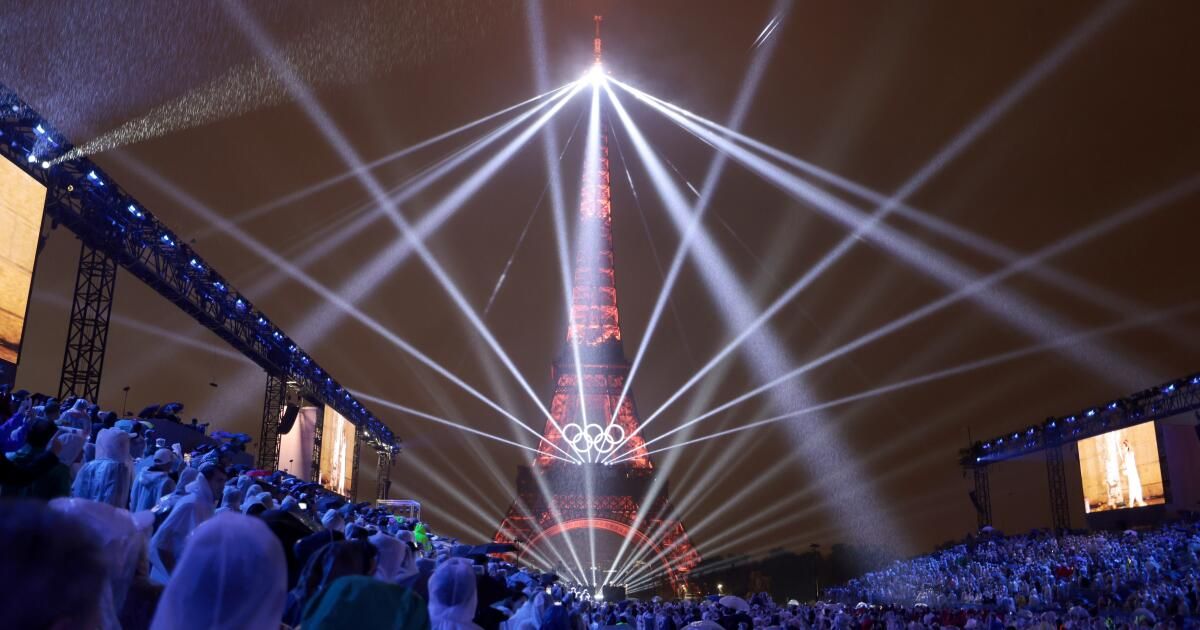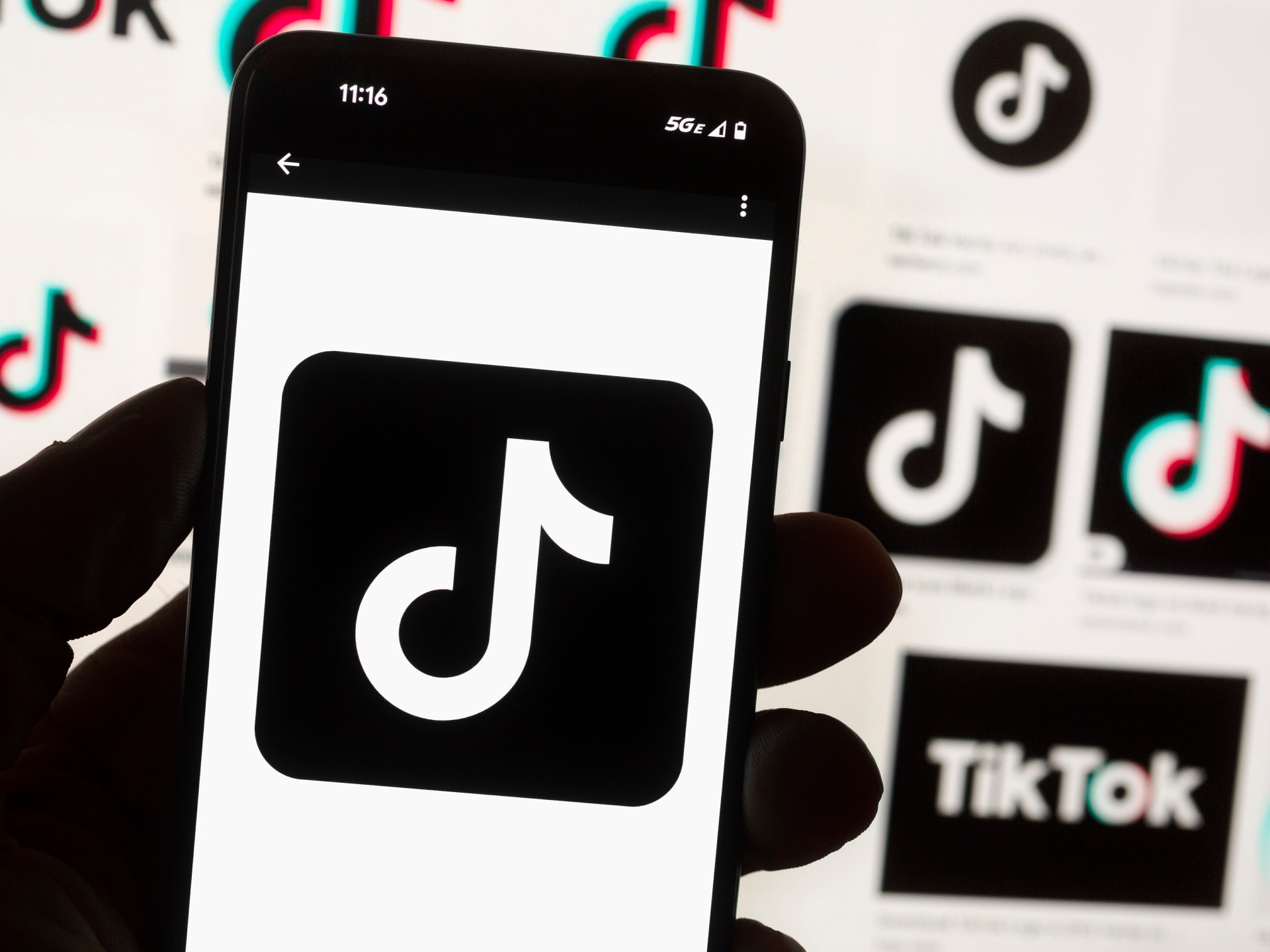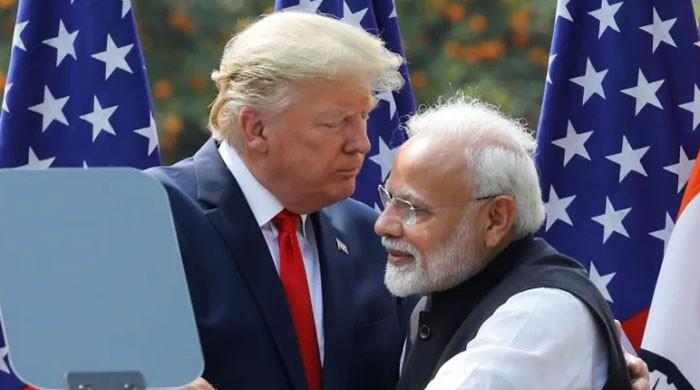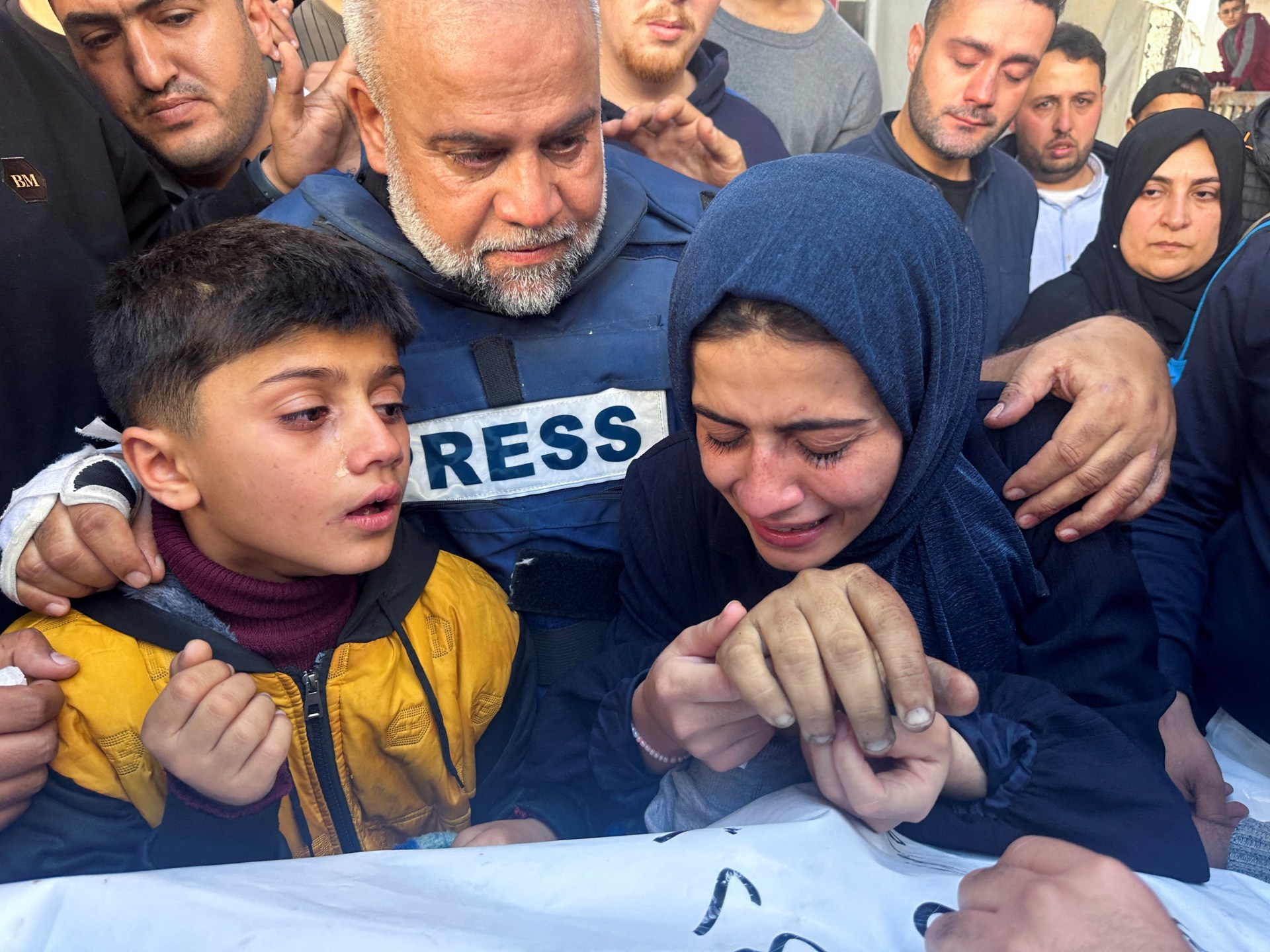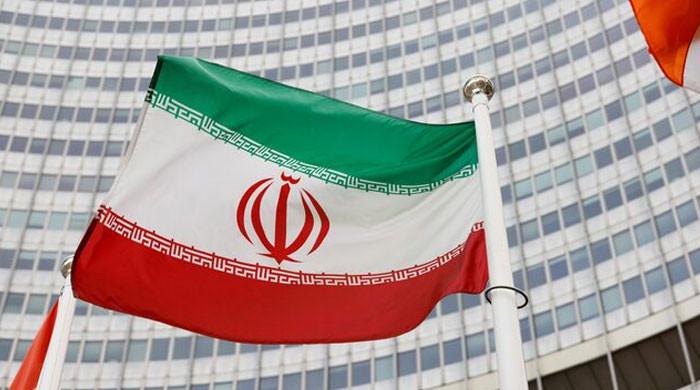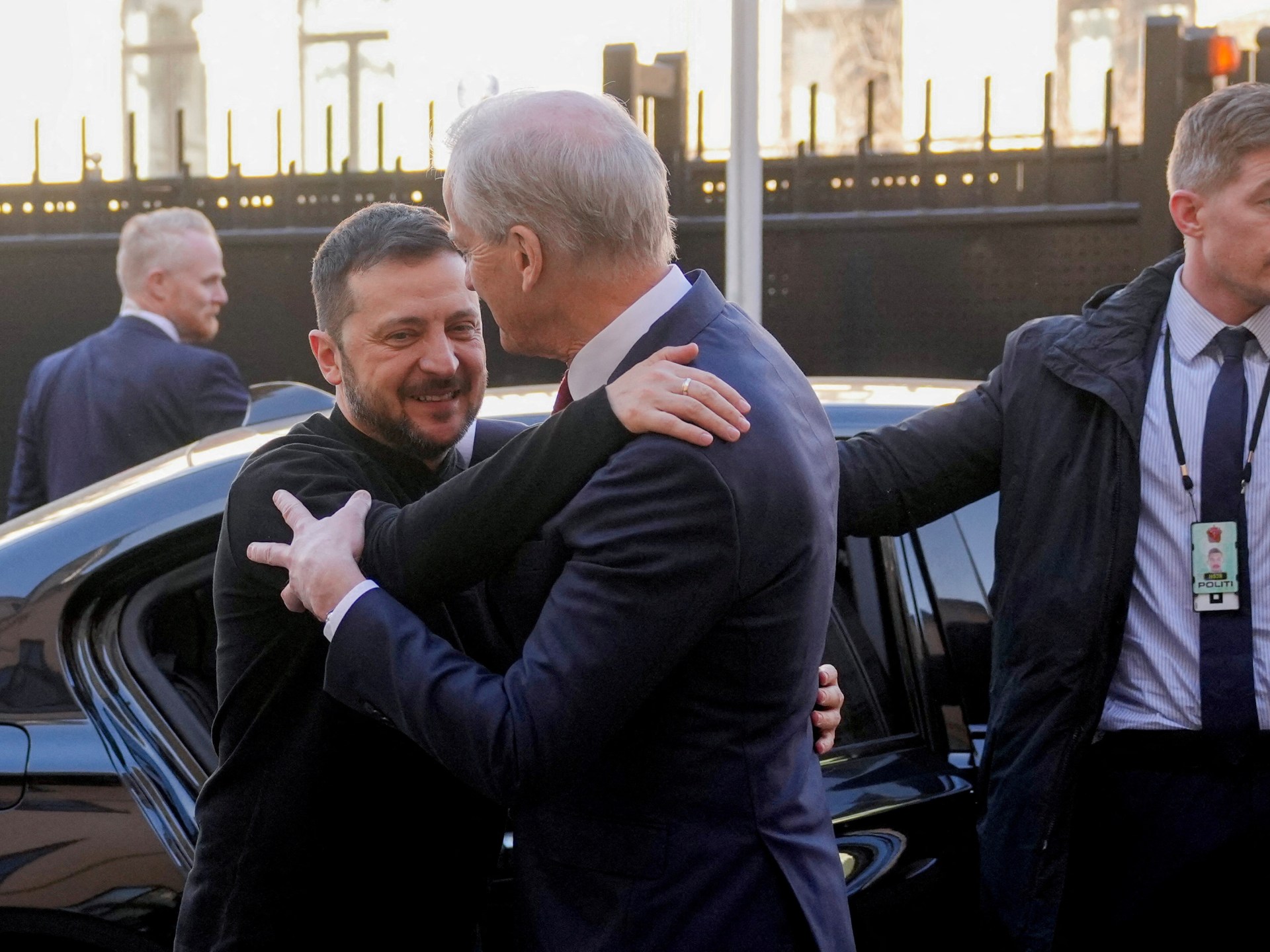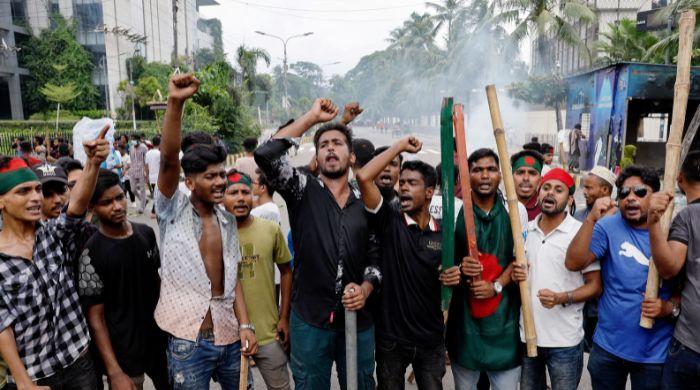PARIS — All over the city, people were talking about bad weather and looking nervously at a gray, gloomy sky.
Sure enough, the clouds unleashed torrents of rain late Friday afternoon, soaking the streets and threatening to spoil France's big moment.
Then the show began.
Paris 2024 Summer Olympics
A convoy of boats crossed the Seine, one after the other, carrying thousands of athletes. Lady Gaga danced on a glittering stage and Celine Dion sang from a perch on the Eiffel Tower. The Olympic torch levitated like a giant hot air balloon.
It seemed that nothing, not even a raging summer storm, could stop the Paris Olympics from staging one of the most spectacular opening ceremonies in history.
“Through this ceremony, our country will show the world what it is all about,” said President Emmanuel Macron. “Let the party begin!”
There has been a sense in recent weeks that France needed something like this, a reason to celebrate after a difficult period that included protests and labor unrest, political turmoil and even a series of arson attacks that disabled the rail system on Friday morning.
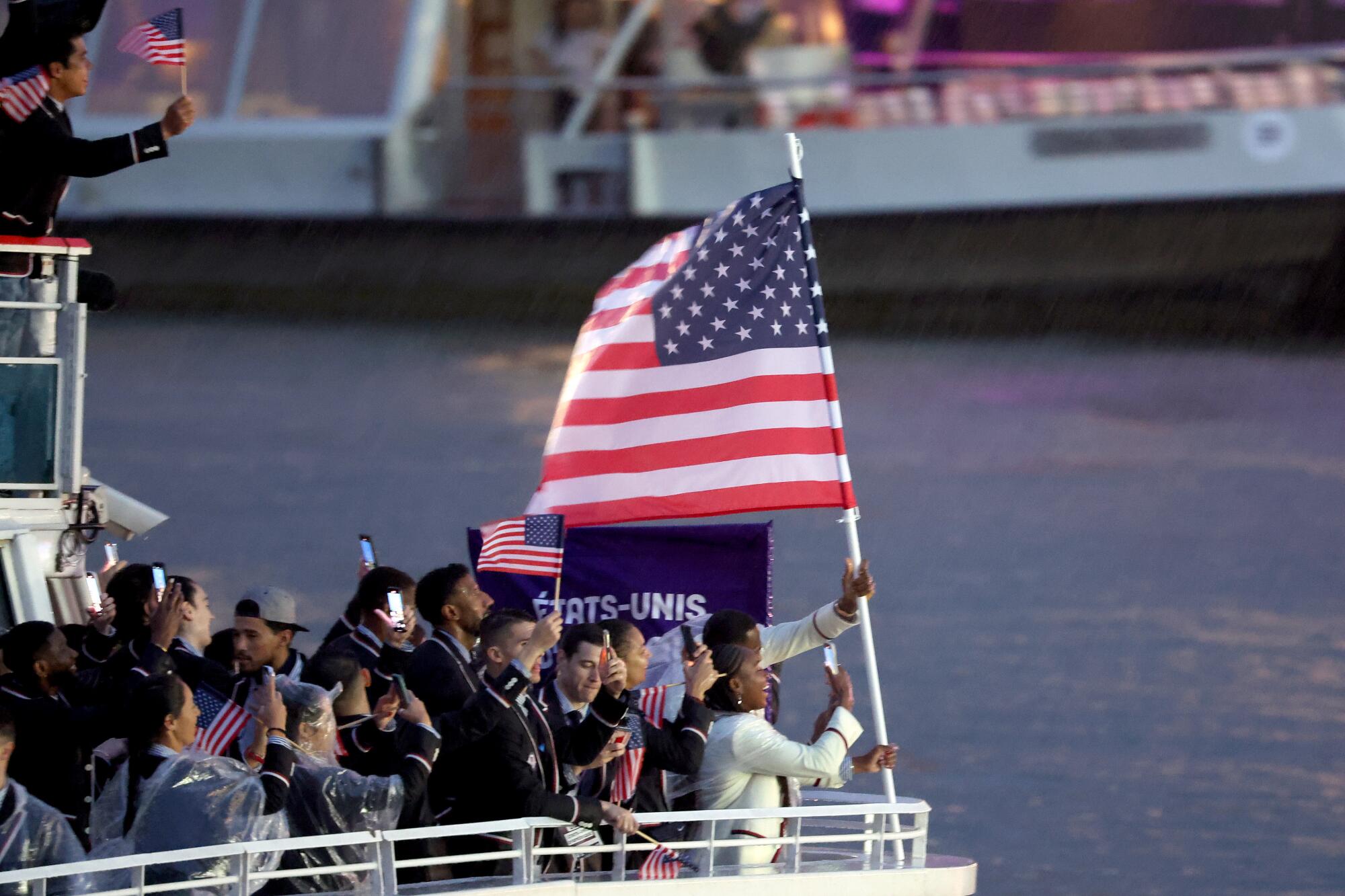
U.S. flag bearers Coco Gauff and LeBron James stand at the front of the Team USA boat as it sails down the Seine during the opening ceremony of the Paris Olympics.
(Wally Skalij / Los Angeles Times)
Olympic organizers took a risk by eschewing a traditional stadium spectacle in favor of a six-kilometer parade along the Seine with some 320,000 spectators watching from the riverbanks. This departure from convention fit in with their effort to transform Paris into a vast playground, staging sporting events at iconic venues such as the Palace of Versailles and the Grand Palais.
“There is no role model and there is a space to be creatively free,” artistic director Thomas Jolly told Olympic News this week. “So it’s been amazing.”
Jolly created a typically French event, dizzying in its scope and its artistry, sometimes bizarre. It began at the Austerlitz bridge with this flotilla carrying 6,800 athletes from 205 countries. The big teams crowded into the ferries, the small teams into the smallest boats.

Floriane Issert, a non-commissioned officer of the French National Gendarmerie, carries the Olympic flag during the opening ceremony.
(Wally Skalij / Los Angeles Times)
One of the most anticipated moments came at the beginning, when Lady Gaga sang in French from a golden stage. She was followed by cabaret dancers, all dressed in pink, who kicked their feet at the edge of the water.
In recent times, the country has suffered not only protests over the wars between Israel and Hamas and over Ukraine, but also threats of mass defecation in the Seine. Last month, Macron's decision to call early elections left parliament in chaos.
Shortly after the arson attacks caused delays for thousands of train passengers, Paris Mayor Anne Hidalgo issued a statement saying she hoped the Games could be “a community celebration” and “an unforgettable moment of public festivity.”
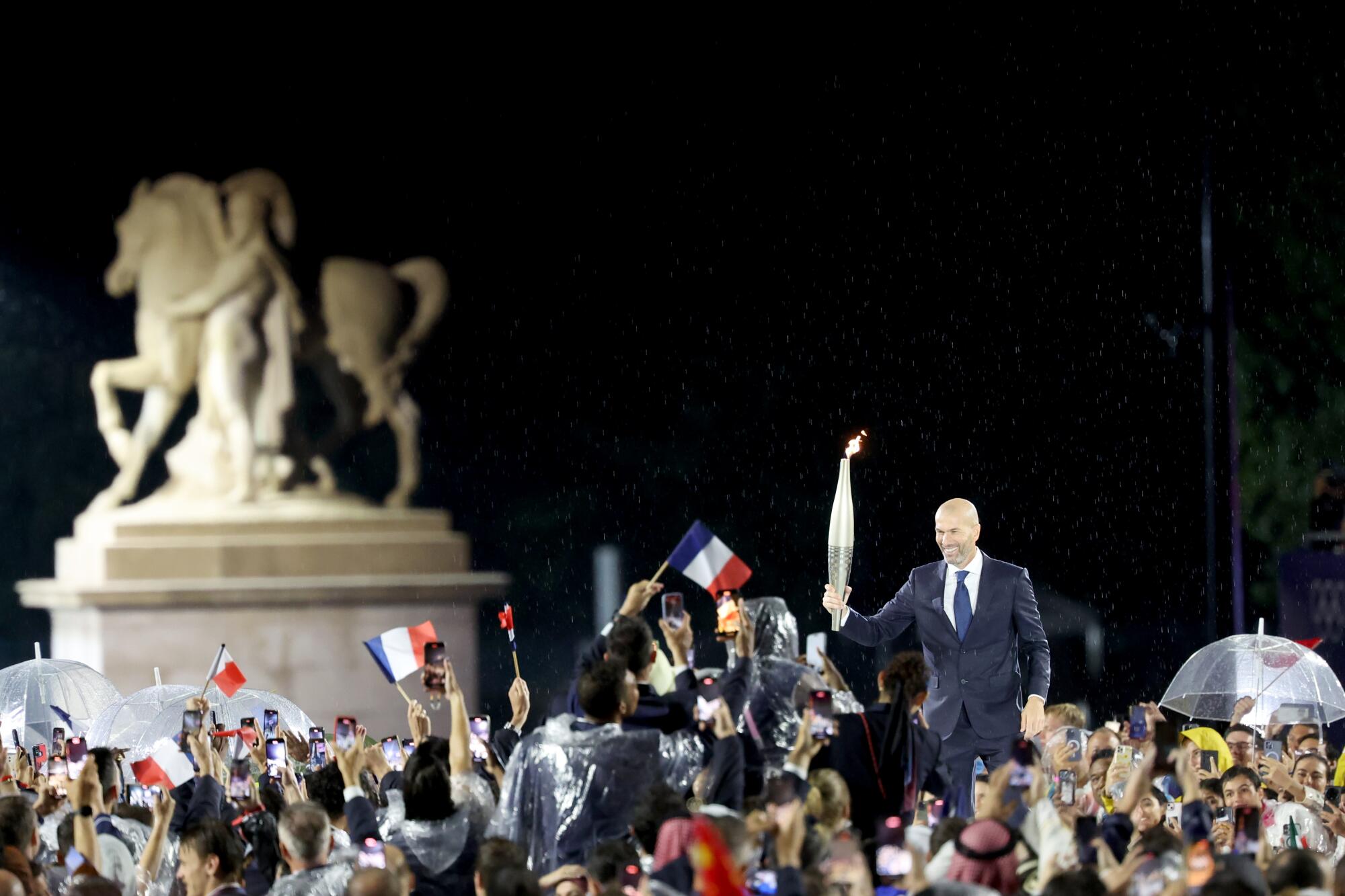
French football legend Zinedine Zidane carries the Olympic torch during the opening ceremony.
(Wally Skalij/Los Angeles Times)
The organisers deliberately included cultural references to Les Misérables, fashion icon Yves Saint Laurent and the Louvre. Notre Dame made a brief appearance.
The cathedral, devastated by a fire in 2019, should have reopened by now, but artists were left swinging from construction scaffolding.
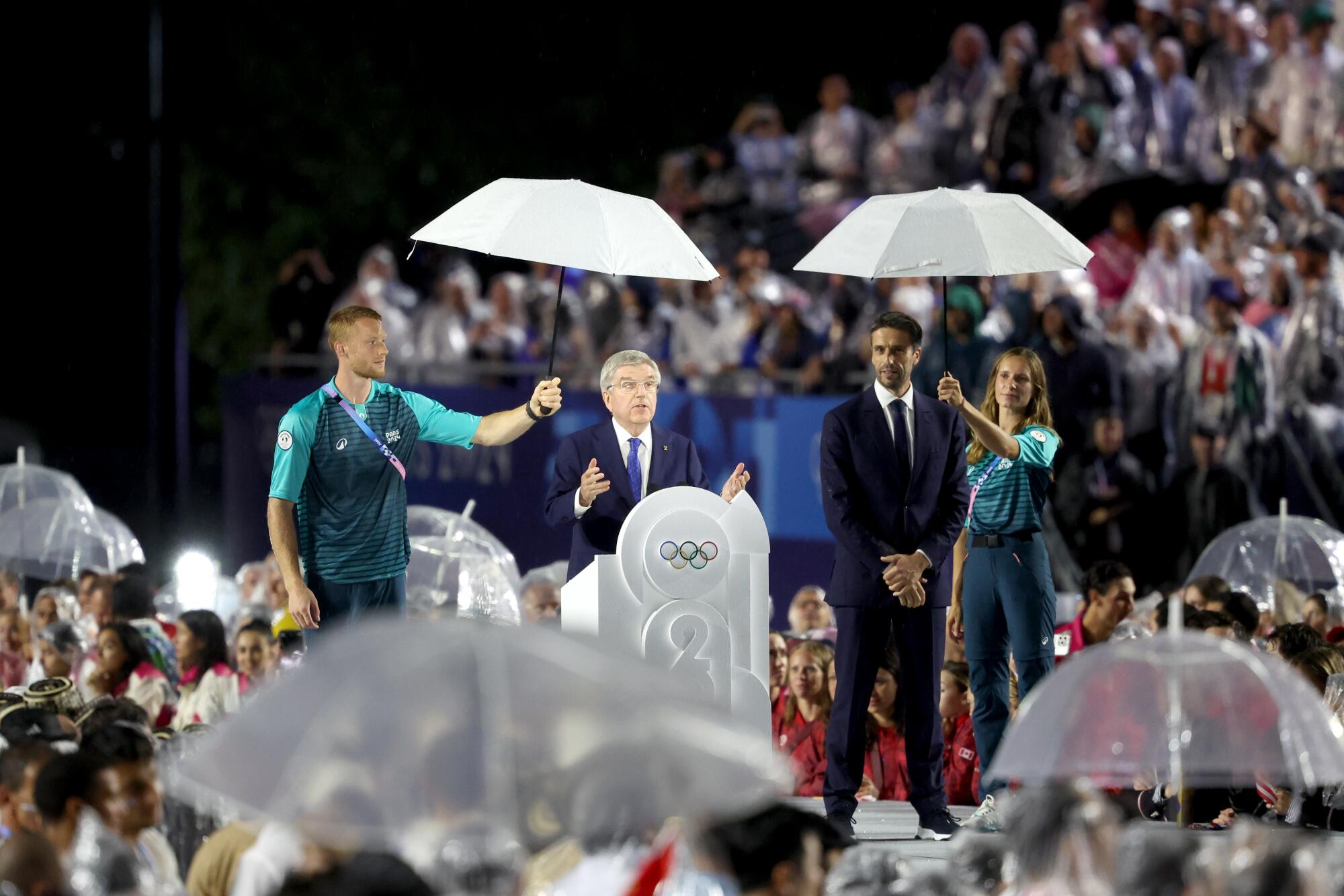
Thomas Bach, President of the International Olympic Committee, gives a speech at the Trocadero during the opening ceremony.
(Wally Skalij / Los Angeles Times)
Given the size of the ceremony, giant screens were set up at various points so spectators could follow the action. Although the rain intensified, the crowd remained along the river.
The pace slowed a little as the parade came to a close outside the historic Trocadero. International Olympic Committee President Thomas Bach gave his customary speech and the athletes read out the Olympic oath.
But there was no way a night like this could end with mere formalities.
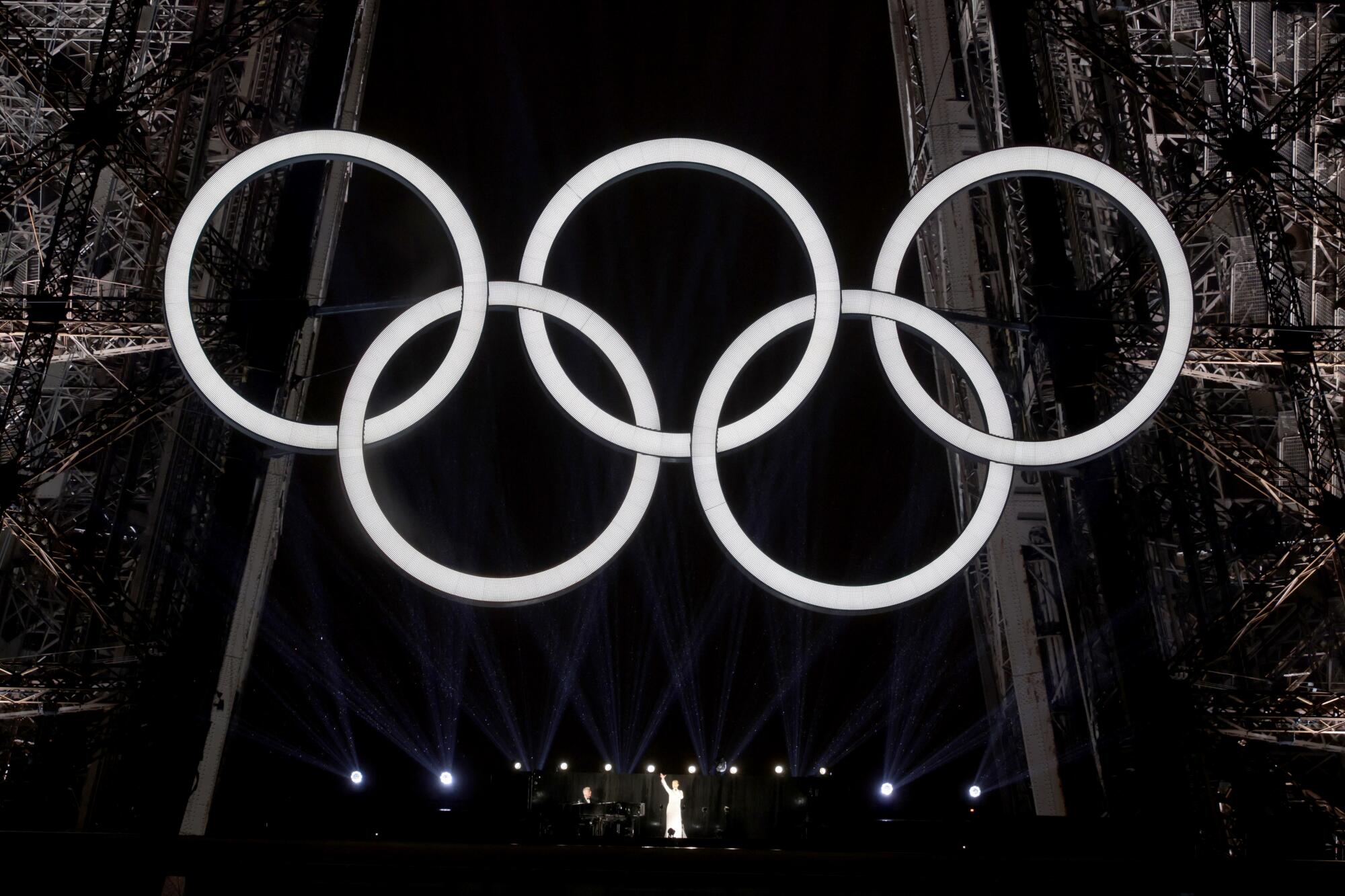
Canadian singer Celine Dion performs at the Eiffel Tower at the end of the Olympic Games opening ceremony on Friday.
(Wally Skalij / Los Angeles Times)
Music soon began to play through speakers as beams of light crisscrossed the Eiffel Tower. Dion, who has been battling an illness, gave an emotional performance. Carl Lewis, Nadia Comaneci, Serena Williams and Rafael Nadal helped pass the torch for her gravity-defying act.
As Bach noted, Paris had hosted the Games in a “spectacular” manner. The city was ready to have a good time.
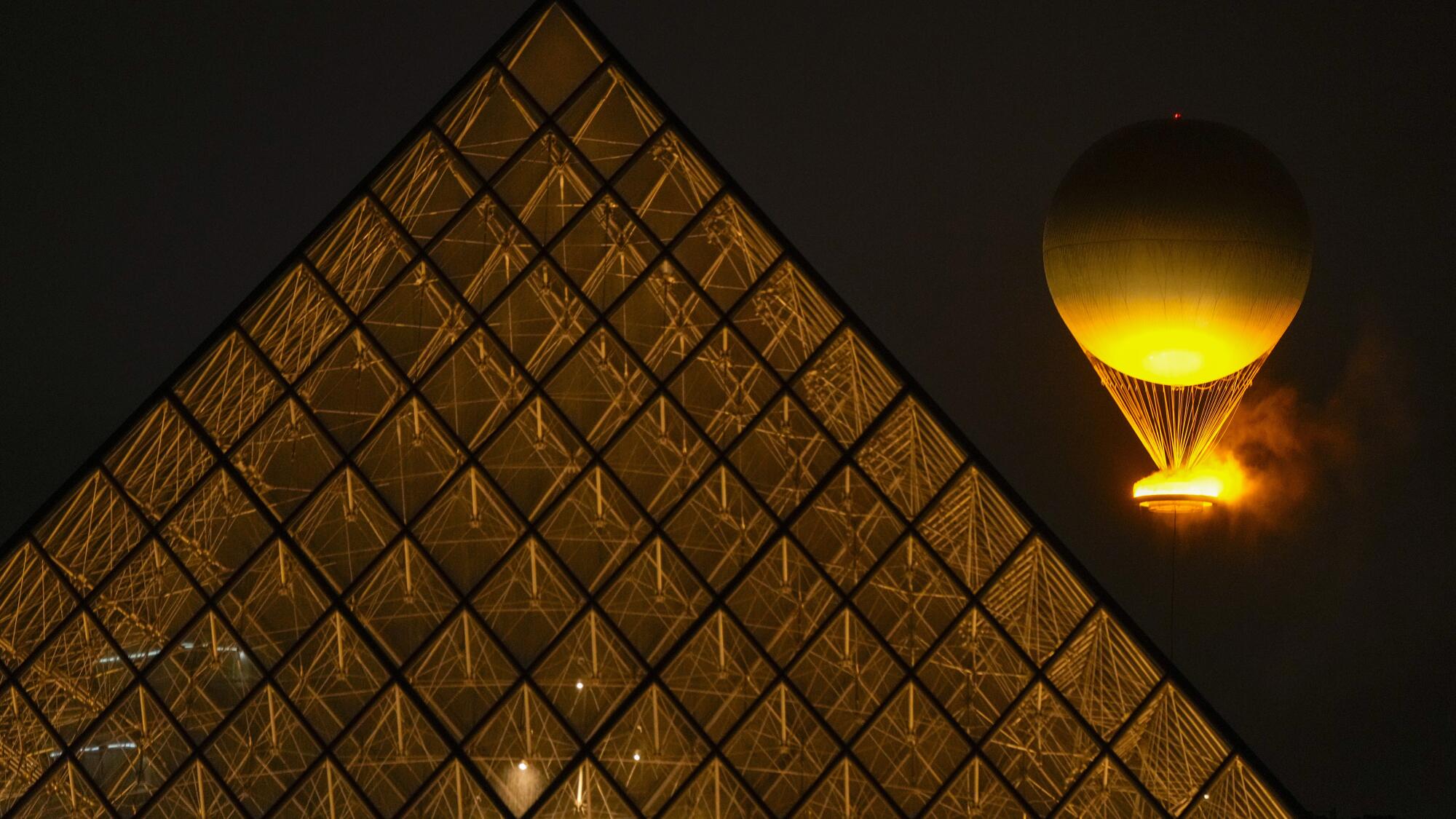
The Olympic flame rises in a balloon over the Louvre after being lit in Paris during the opening ceremony.
(Francisco Seco/Associated Press)

